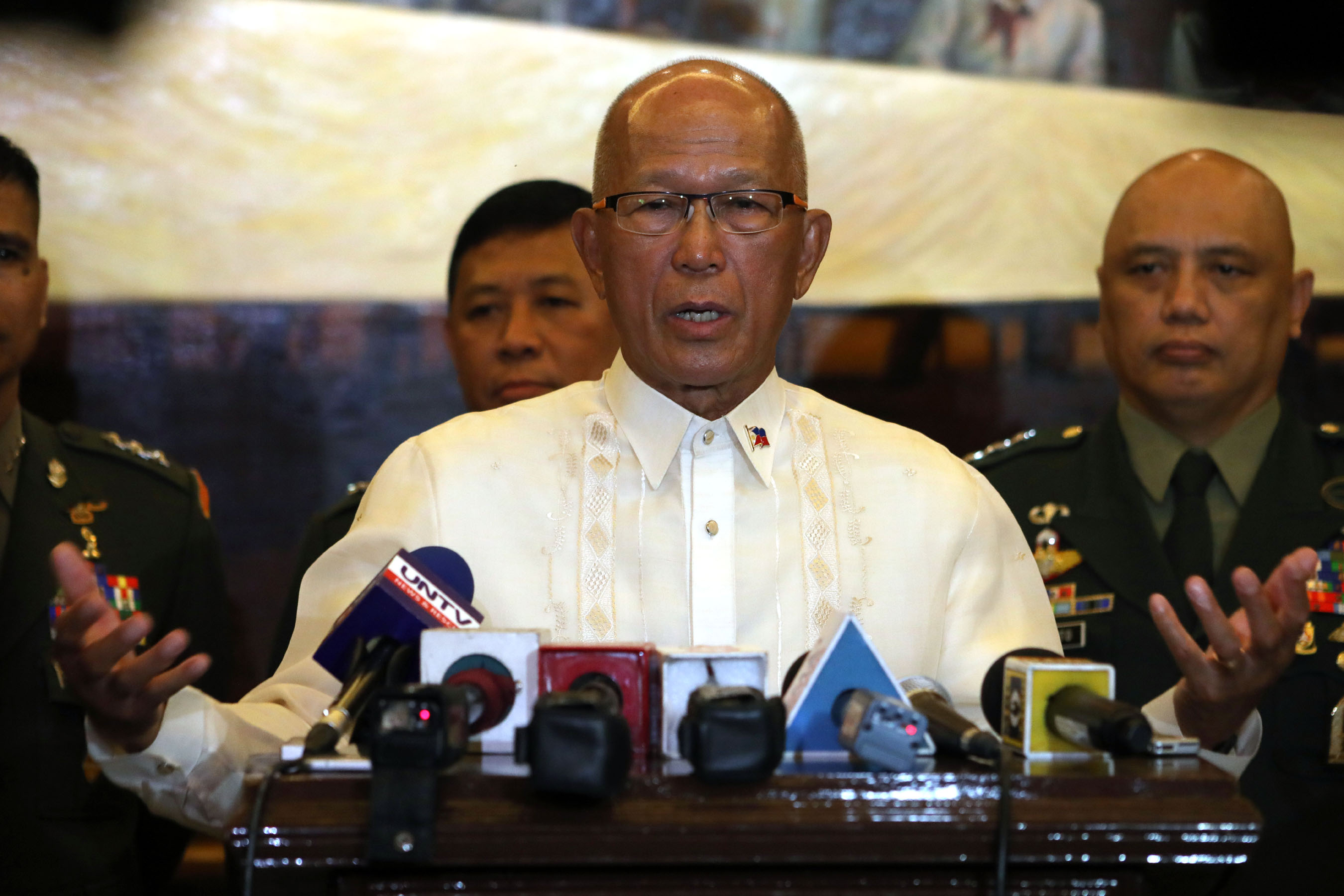News
Reg’l cooperation needed to address climate change

This was pointed out by Department of National Defense (DND) Secretary Delfin Lorenzana during the International Institute for Strategic Studies (IISS) Shangri-La Dialogue, 18th Asia Security Summit which was held in Singapore over the weekend. (PNA file photo by Joey O. Razon)
MANILA — Climate change is a looming threat for many nations in the Indo-Pacific regions.
This was pointed out by Department of National Defense (DND) Secretary Delfin Lorenzana during the International Institute for Strategic Studies (IISS) Shangri-La Dialogue, 18th Asia Security Summit which was held in Singapore over the weekend.
“In particular, climate change could turn into an almost existential threat to many countries across the mega-region. According to a recent HSBC study, India, Pakistan, Bangladesh, the Philippines, Sri Lanka and Oman are among the top 10 vulnerable nations to adverse impact of climate change, rising sea levels, increased average temperature as well as extreme weather conditions,” he said in his speech which was forwarded to reporters Monday.
Lorenzana said the Philippines, for one, is battered by powerful typhoons on a yearly basis, destroying countless homes, large tracts of farmlands, and threatening millions of lives in the process.
“Earlier this decade, the island of Samar was severely devastated by super typhoon Haiyan (Yolanda), the most powerful of its kind in almost in a century,” Lorenzana said.
Yolanda, which made landfall in Guiuan, Samar in Nov. 8, 2013, devastated Tacloban City and caused thousands of deaths along with billions of pesos in agricultural and property damage.
Aside from strong typhoons, the DND chief said rising sea levels could also threaten the existence of island nations in the Indian and Pacific Oceans and force the evacuations of mega-cities like Calcutta, Jakarta and Manila.
“By the end of this century, rising temperature, in turn, will affect farm productivity and marine life across the Indo-Pacific, threatening the food supply of hundreds of millions of people, rendering large parts of West and South Asia unproductive if not habitable,” Lorenzana said.
And this is why, in the Philippines, he said, disaster response and mitigation management have become a major component of the country’s national security doctrine and international engagements.
With climate change, comes the risk of heightened resource-competition both domestically and internationally especially in areas of overlapping continental and territorial claims.
Lorenzana admitted that there is no guaranteed formula to address these challenges that loomed near the horizon.
“Yet, we have the shared responsibility to transcend our narrow differences and the competitive geopolitics of the moment, and instead devise a new blueprint of regional cooperation as well as uphold common interests in the most effective and inclusive way possible,” he concluded.
The IISS Shangri-La Dialogue is Asia’s premier defense summit. It’s a unique meeting where ministers debate the region’s most pressing security challenges, engage in important bilateral talks and come up with fresh solutions together.
Since its launch in 2002, the Dialogue has built confidence and fostered practical security cooperation, by facilitating easy communication and fruitful contact among the region’s most important defense and security policymakers.





















